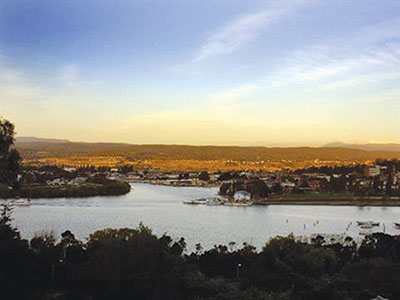The City of Launceston, Tasmania, has formally received a study into the effectiveness of sediment raking, and its impacts on kanamaluka / the Tamar River Estuary.
The report was prepared by the City of Launceston for the Tasmanian Parks and Wildlife Service, in fulfilment of a permit condition required for the sediment raking.
Sediment raking was undertaken by the Launceston Flood Authority between 2012 and 2018 under a five year permit which, on expiration, was extended for a further 12 months.
The review found the sediment raking trial had not achieved its primary goal of a net loss of sediment from the upper estuary for the purposes of flood defence.
It also found the raking program had resulted in infilling of navigation channels in the upper estuary, and had resulted in poorer water quality outcomes downstream.
Mayor, Albert van Zetten, said Council would now work with experts to identity appropriate future sediment management initiatives, which would likely include a return to dredging to restore the deeper channels.
“What this report makes clear is that silt raking has limitations and drawbacks that rule it out as a standalone solution for sedimentation management.
“There may still be a place for silt raking in managing sediment in the estuary’s navigation channels into the future, in the right scenarios, and in combination with other methods.
“However, when it comes to sediment management for the purposes of flood mitigation and navigation, it’s apparent that we are going to need to look at other options going forward.
“Our understanding of the kanamaluka / Tamar Estuary has improved dramatically in recent decades, but a number of misconceptions remain in the general community.
“Contrary to views we sometimes hear in the community, the accumulation of silt in the upper reaches of the estuary is a natural process, and one which existed well before Launceston was founded.
“There is still much work to be done to ensure we have an estuary the City can be proud of, and the City of Launceston hopes the data gathered during this trial will allow for a sensible community discussion on ways forward, and an improved understanding of what our goals should be when it comes to sediment management.

















